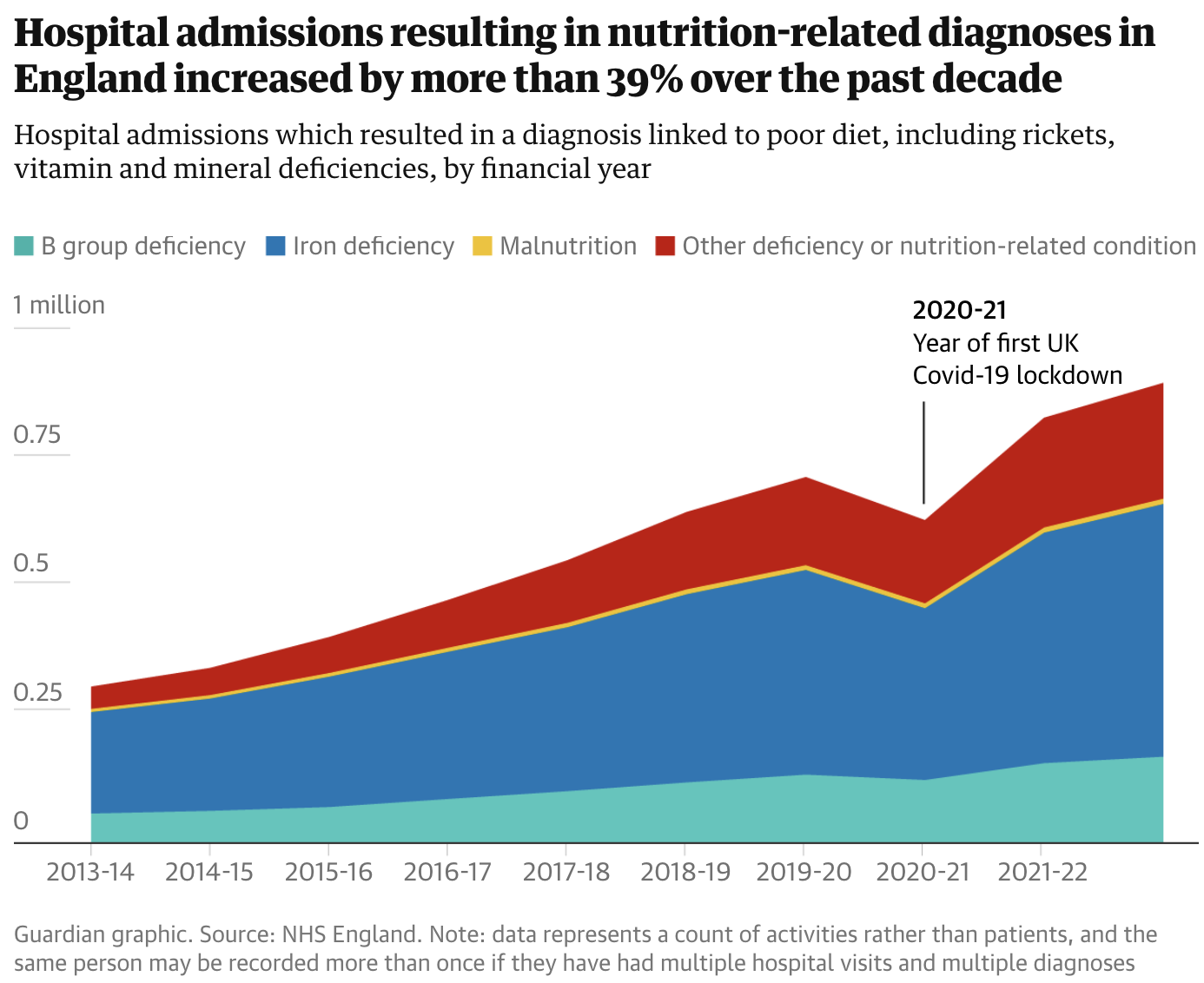Yves here. Richard Murphy inveighs against the UK’s hate-the-poors posture, leading off with its level of food insecurity and follow-on health costs. The UK just entered a recession after lousy performance in 2023. Recall also that the UK suffered acute energy and food cost increases in 2022.
But it is not as if the US, with our supposedly better economic performance, is doing all that much better with the impoverished. Our level of food insecurity in a supposedly booming economy, rose to 12.8% in 2023, not that much lower than the clearly struggling UK’s 15%. US life expectancy has fallen when even with Covid, it’s held steady in other advanced economies. From KFF Health System Tracker:
Even low income Thailand has a higher life expectancy at birth than the US.
Note that American officials like to complain that we can’t find enough fit and bright enough young men to serve. (yes you do need young men to serve in the infantry; only a very few women have the genetics to be able to carry heavy loads long distances; women do just fine in many other positions). Has no one connected the dots that it’s not just the sedentary lifestyles and junk food but also too many instances of underfeeding? It may be apocryphal or an exaggeration, but Winston Churchill claimed than an objective of his time as Home Secretary was to improve nutrition of the lower classes (his term was so short, from 1910 to 1911, I doubt he could have implemented much but perhaps he was one of several in the Liberals who promoted this policy). Churchill said that by the start of World War II, it was no longer possible to look at British soldiers and correctly guess their class by their height.
Colonel Smithers weighted in on the original post, giving a thumbnail version of Jeremy Hunt’s family connections and concluding: “The above elite is sheltered. To preserve their power and comfort, others must pay.”
By Richard Murphy, part-time Professor of Accounting Practice at Sheffield University Management School, director of the Corporate Accountability Network, member of Finance for the Future LLP, and director of Tax Research LLP. Originally published at Tax Research
A number of related themes are apparent in commentary on the economy this morning.
One is poverty. As the Guardian notes:
Millions of people – including one in five families with children – have gone hungry or skipped meals in recent weeks because they could not regularly afford to buy groceries, according to new food insecurity data.
According to the Food Foundation tracker, 15% of UK households – equivalent to approximately 8 million adults and 3 million children – experienced food insecurity in January, as high food prices continued to hit the pockets of low-income families.
This is a tale of destiution and misery in the UK.
They add this graph:

We have a health crisis not just caused by Covid (although that is still very real) but by the existence of poverty thanks to George Osborne and successive subsequent Tory Chancellors, soon the be perpetuated by Rachel Reeves. That crisis is not just personal; it is collective in its cost.
Then there is this in the FT:
A lack of available loans from traditional UK lenders is pushing vulnerable consumers towards unregulated credit products as they struggle financially in the cost of living crisis, according to a study.
The UK nonprime lending market — which offers loans to riskier customers with average to low credit scores — has shrunk by more than a third since 2019.
In contrast, unsecured loans from unregulated lenders, such as those offering buy now, pay later (BNPL) products, have jumped in recent years, according to research from credit-checking platform ClearScore and consultancy EY.
The result is that the most vulnerable people in the UK who need to borrow to meet unexpected costs because they have little, or usually no, savings are being forced into the highest cost, most abusive, arrangements. It was this concern that motivated a post I made yesterday: you would never have known it from the comments of the right-wing trolls who poured in during the day to offer abuse, and who got deleted for their efforts.
And finally, there is this, also in the FT but reported in a remarkably similar style in the Guardian:
Jeremy Hunt’s financial planning is “dubious” and “lacks credibility” and the chancellor should not announce tax cuts in next week’s budget if he cannot lay out how he will fund them, an economic thinktank has said.
The Institute for Fiscal Studies (IFS) calculates that Hunt would need to find £35bn of cuts from already threadbare public services if he plans to use a Whitehall spending freeze to pay for pre-election giveaways.
A fresh round of austerity in unprotected departments would boost the chancellor’s war chest for tax cuts, the independent tax and spending watchdog said, but an increase from an expected £15bn of headroom to about £50bn over the next five years would come at a high cost.
That cost will, in very large part, be seen in the perpetuation of poverty. The lowest paid will suffer tax rises. They will have the services that they need cut. The NHS, social care and housing will not be properly funded. Education, that was the route out of this, is unable to meet need. And benefit increases have not met inflation-hiked prices for basic commodities. And Hunt wants to make all of this worse.
A government unable to admit that there is Islamophobia in its rank hopes that rows on that issue will distract attention from another pressing concern, which is that its deliberate policy of prejudicing the poorest in our society is imposing destitution on millions and relative poverty on us all because of the opportunities lost to the communities in which we all live.


